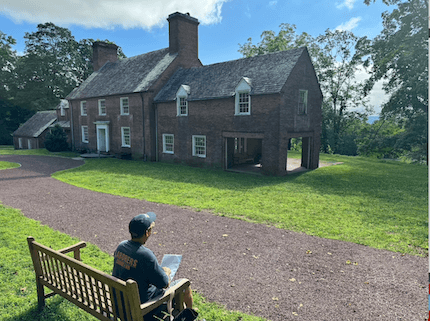My friend’s husband Paul came over to cut down trees in the woods behind our house. He arrived with a gas-powered chainsaw, an electric chainsaw, soundproofing earmuffs and protective eyeglasses. My husband, misty-eyed, watched him unload his Jeep. Then they shared a manly handshake.
‘€œI want to get rid of that one, those two over there, and that big one over there is dead, so let’s take it down, too,’€ I said to Paul.
‘€œC’mon, Rick,’€ Paul said, slapping him on the back. ‘€œGive me a hand.’€
As the men scrambled down the hill into the woods, I was secretly glad it was someone else’s husband who would be doing the dangerous work. But I wondered whether Ricky had been harboring resentment: I had refused to let him get a chainsaw or any other power tool that can chew a hand like a hungry bear.
When Ricky moved into my Upper West Side apartment 10 years ago, he had old-school hand tools: augers, planes, gimlets, awls, spokeshaves ‘€” nothing that needed gas or electricity. We kept them in the trunk of our car because there was no place inside to store them safely ‘€” and because no torture museum was in the market for artifacts. I used to say that one day a sheriff was going to stop us and ask, ‘€œSir, can you open the trunk?’€ and we’d be detained for hours.
‘€œWhy don’t you get rid of these old tools?’€ I’d ask.
‘€œBecause one day I’m going to build something using hand tools,’€ he’d promise.
When we moved to Rockland County, Ricky got a shed to store his hand tools, but he insisted we needed an all-in-one Black and Decker battery-operated drill driver for our 150-year-old house.
‘€œYou can’t call the super every time something breaks,’€ he said.
Over the years, my husband has come to the rescue more times than I can remember, tightening towel rods, fixing cabinets. He crafted shutters, built planting boxes and framed a patio.
Until I married Ricky, the men I knew, my father included, hired other men to cut, drill and fix stuff. I had at first assumed my husband, who grew up in urban Canarsie like me, descended from similar stock. But his late father was a power-tool dealer who brought every newfangled gadget to their weekend Catskill house. Ricky’s boyhood toys were drills, saws, tractors and Sawzalls. He learned to fell a tree when he was 12.
It’s comforting to live with a man who knows his way around a toolbox. It’s even sexy, so long as he’s not in danger of getting mangled or disfigured.
Three years ago, Ricky wondered if I would consider buying him a stationary table saw for his birthday.
‘€œWhat’s that?’€ I asked.
‘€œA flat table with a blade underneath it,’€ he explained. ‘€œYou turn a crank and the blade rises from the table.’€
The only thing rising at that moment was my lunch.
‘€œWhy do you need that?’€
‘€œI’m thinking about building a greenhouse.’€
The following weekend when we went to look at the contraption, I turned white.
‘€œI guess you’re not too comfortable with this?’€ he asked. We didn’t buy one.
Weeks later, we were with our friend Peter. I noticed horrific scarring on his hand.
‘€œI severed my hand using a table saw,’€ he said.
I shot Ricky a look. Even he looked a bit queasy when Peter explained how the paramedics brought his thumb on ice to the ER so it could be reattached.
Ricky’s birthday is coming up. I asked him what he wanted. He said a slick.
‘€œIt’s a chisel with a blade you use for post and beam construction,’€ he explained. ‘€œI’m going to build a timber-frame studio the old-fashioned way, using hand tools.’€
I told him we’d go shopping next weekend.
Tina Traster writes the New York Post’s ‘€œBurb Appeal’€ column and the ‘€œThe Great Divide’€ at HuffingtonPost.com.









